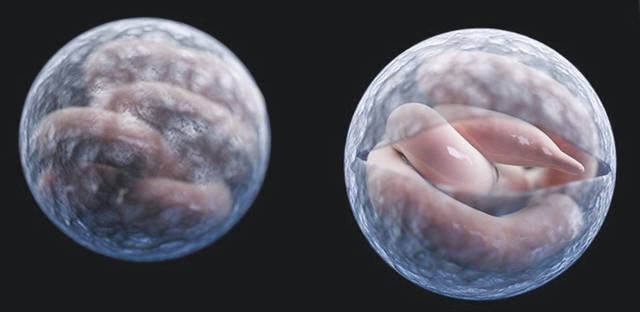
The Champaign County Health District is stressing what 4-Hers, FFA members, fair-goers and others have heard before: Wash your hands after contact with animals and after being in barns; and don’t eat or drink when around animals.
This advice is given now due to cases of Cryptosporidiosis in Champaign and Clark counties (see adjacent article).
“Unfortunately, this is not something unusual to get from a calf,” said Stacy Thomas, the Health District’s director of nursing. “We can’t prevent the calves from having it, but we can take steps to prevent humans from getting it.”
While not all the confirmed and suspected cases of Cryptosporidiosis may be directly related to youths obtaining calves for fair projects, the Health District is working with the Champaign County office of OSU Extension to educate youths about keeping barns clean and using good hygiene.
“If caring for animals, they should do proper maintenance of their pens, keep them clean, keep them dry,” said Andy Russell, the Health District’s environmental director. Hands and clothes contaminated around animals and their habitats can carry the infection indoors and to other people.
Thomas said those with the infection in Champaign and Clark counties are recovering. The first case was reported in early February and the last on Feb. 19. She added that the age range in this recent outbreak is from elementary students to older people.
“Typically people get over it on their own without medication, as long as they hydrate,” she said, noting that diarrhea is a major symptom. “It is more dangerous to the elderly and young children, because of the hydration issue.”
Asked whether this recent outbreak appeared to be over, Thomas said the problem never can be said to be over, that the possibility is always there. “The potential is there for any 4-H and FFA kid.”
Health Commissioner Gabe Jones said Champaign County generally has one or two reported cases a year. He added that about 300,000 cases are reported each year in the United States.
“The parasite produces spores that are hardy,” he said, adding they can thrive in barns and in homes a long time if those places are not properly cleaned. As noted in the adjacent article, only a 3 percent solution of hydrogen peroxide will do the job.
Thomas indicated that education is key to preventing or halting Cryptosporidiosis. That’s why the Health District and OSU Extension are encouraging young and old alike to keep animals healthy, keep animal habitats clean and to use good hygiene when around animals and when in homes.
For further information about health concerns of Cryptosporidiosis, call the county Health District at 937-484-1605.
For information about maintaining healthy livestock and livestock habitats, call the county Extension office at 937-484-1526.


